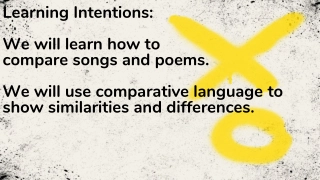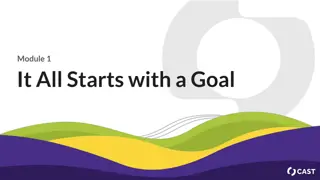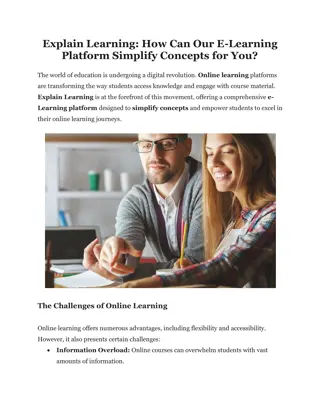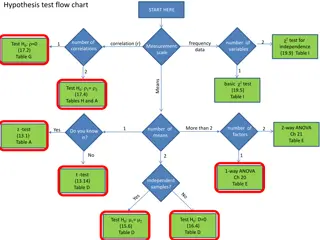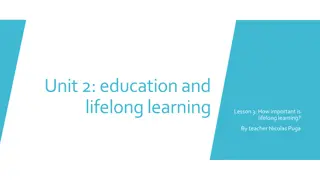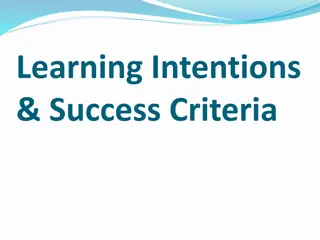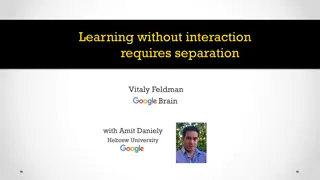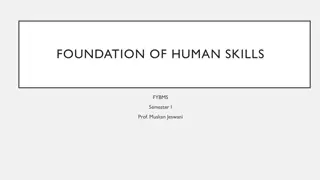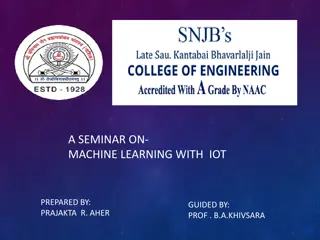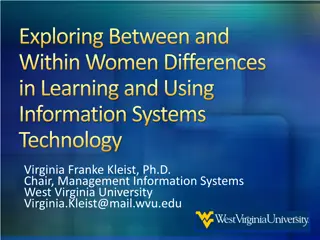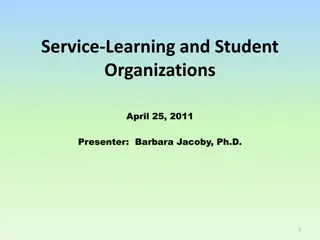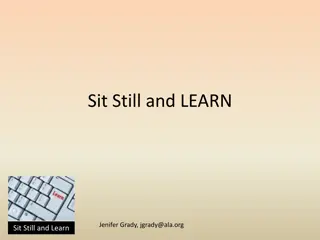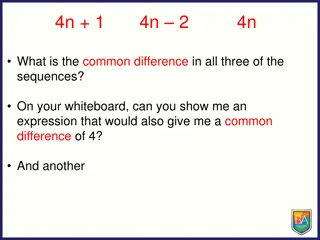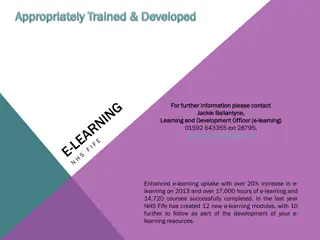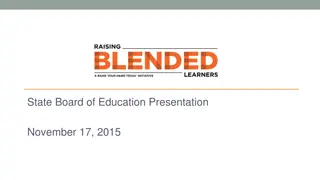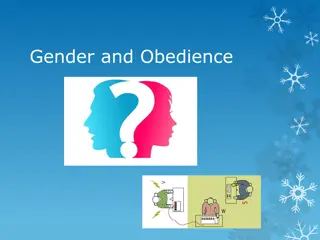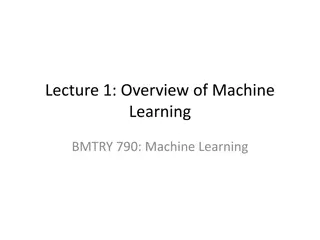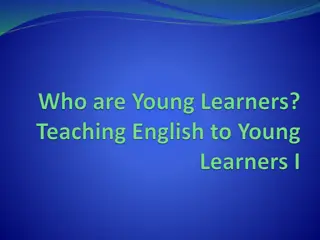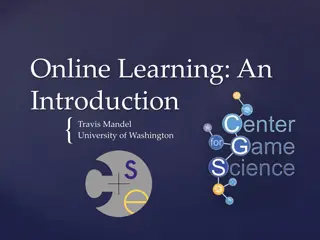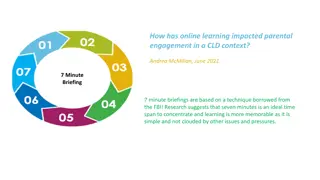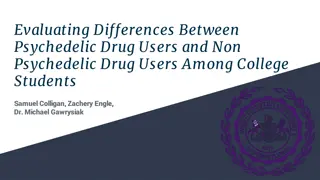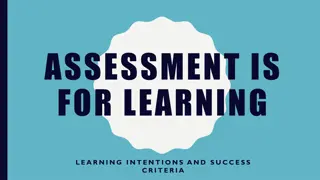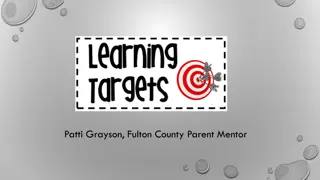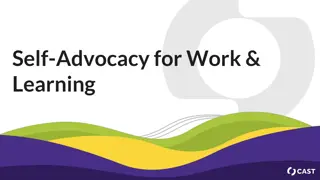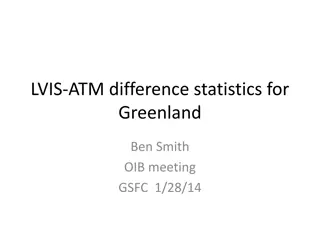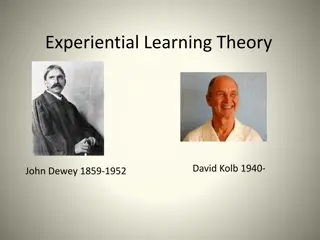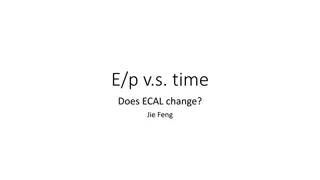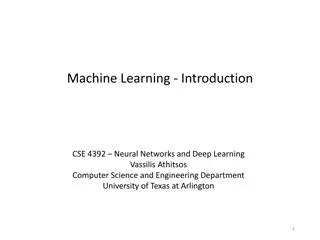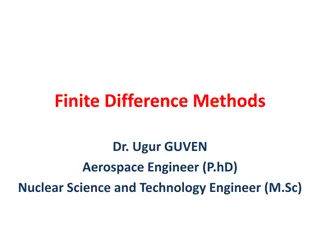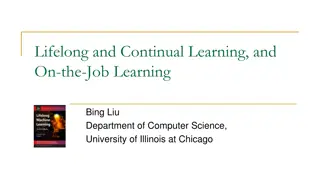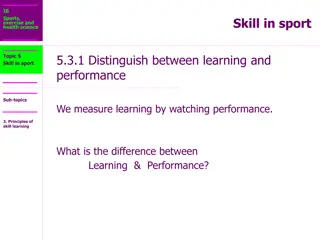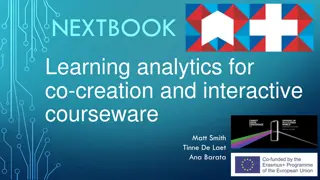College Transition Planning for Students with Learning Differences
Explore transition planning for students with learning differences like dyslexia, dyscalculia, dysgraphia, auditory and visual processing disorders, and nonverbal learning disabilities. Understand executive functioning challenges and characteristics of ADHD in educational settings.
5 views • 37 slides
Learning Intentions: We will learn how to compare songs and poems. We will use comparative language to show similarities and differences.
Explore the art of comparing songs and poems, using comparative language to highlight similarities and differences. Dive into Venn diagrams, linking words, and key terms to analyze genres like Reggae, Irish Ballads, and Rap music.
1 views • 10 slides
Universal Design for Learning: Embracing Diversity in Education
Embrace the fluidity of language and diverse learning experiences within the Universal Design for Learning framework. Celebrate learning differences and accessibility. Explore additional technologies to enhance the learning experience, promoting inclusivity and respect for individuality.
6 views • 81 slides
Explain Learning How Can Our E-Learning Platform Simplify Concepts for You
Explain Learning is at the forefront of this movement, offering a comprehensive e-learning platform designed to simplify concepts and empower students to excel in their online learning journeys. Know more \/\/explainlearning.com\/blog\/explain-learning-e-learning-platform-simplifies-concepts\/
1 views • 4 slides
Understanding Analysis of Variance (ANOVA) for Testing Multiple Group Differences
Testing for differences among three or more groups can be effectively done using Analysis of Variance (ANOVA). By focusing on variance between means, ANOVA allows for comparison of multiple groups while avoiding issues of dependence and multiple comparisons. Sir Ronald Fisher's ANOVA method provides
0 views • 28 slides
Importance of Lifelong Learning in the 21st Century
Explore the significance of lifelong learning in the modern era through a lesson by teacher Nicolas Puga. Discover the differences in Asian and African schools, the role of technology in education, and the impact of lifelong learning on individual growth and societal development. Engage in activitie
0 views • 8 slides
Understanding Learning Intentions and Success Criteria
Learning intentions and success criteria play a crucial role in enhancing student focus, motivation, and responsibility for their learning. Research indicates that students benefit greatly from having clear learning objectives and criteria for success. Effective learning intentions should identify w
1 views • 24 slides
Online Seminar: Theories of Learning in Initial Teacher Education
This collection of online seminar slides introduces pre-service teachers to major theories of learning, including the Science of Learning through cognitive neuroscience. The presentation aims to help educators consider implications for teaching, recognize theories in action, and pose critical questi
1 views • 11 slides
Experiential Learning Portfolio Program at Barry University
Experiential Learning Portfolio Program at Barry University's School of Professional and Career Education (PACE) offers a unique opportunity to earn college credit for learning gained from work and community service experiences. Through this program, students can showcase their experiential learning
0 views • 16 slides
Understanding Gender-Based Violence Risks and DTM Enumerators' Responsibilities
This content focuses on educating enumerators about gender-based violence (GBV) risks and Differential Timing Methodology (DTM). It covers learning objectives such as differentiating between sex and gender, defining GBV, identifying forms of GBV, understanding its root causes, and exploring how emer
1 views • 56 slides
Exploration of Learning and Privacy Concepts in Machine Learning
A comprehensive discussion on various topics such as Local Differential Privacy (LDP), Statistical Query Model, PAC learning, Margin Complexity, and Known Results in the context of machine learning. It covers concepts like separation, non-interactive learning, error bounds, and the efficiency of lea
0 views • 14 slides
Understanding Human Nature and Individual Differences in Foundation of Human Skills
Explore the foundational concepts of human behavior, individual differences, and organizational culture in the study of human skills. Delve into topics such as human nature, personality, attitudes, intelligence, and learning in Prof. Muskan Jeswani's course. Understand the significance of inter- and
0 views • 11 slides
Seminar on Machine Learning with IoT Explained
Explore the intersection of Machine Learning and Internet of Things (IoT) in this informative seminar. Discover the principles, advantages, and applications of Machine Learning algorithms in the context of IoT technology. Learn about the evolution of Machine Learning, the concept of Internet of Thin
0 views • 21 slides
Innovative Learning Management System - LAMS at Belgrade Metropolitan University
Belgrade Metropolitan University (BMU) utilizes the Learning Activity Management System (LAMS) to enhance the learning process by integrating learning objects with various activities. This system allows for complex learning processes, mixing learning objects with LAMS activities effectively. The pro
4 views • 16 slides
Celebrating Differences: Summer Reflections and Learning
Explore a journey of self-discovery and understanding through colorful reflections on summer experiences, discussions on family dynamics, and heartfelt messages about embracing uniqueness. Join in on creative activities, deep conversations, and a celebration of individuality that transcends differen
0 views • 30 slides
Exploring Gender Differences in Information Systems Technology
This research explores the differences between men and women in learning and using information systems technology, specifically focusing on areas such as childhood nurture, biology, and environment. It delves into how societal influences and upbringing impact engagement in STEM fields and technology
0 views • 28 slides
Understanding Conflict: A Lesson in Resolving Differences
Conflict is a natural part of human interactions, arising from opposing ideas and actions. This lesson delves into the definition, causes, types, and management of conflicts. Emphasizing conflict as an opportunity for learning and understanding, the aim is to promote harmonious coexistence despite d
0 views • 24 slides
Exploring Service-Learning and Student Success in Higher Education
This presentation by Dr. Barbara Jacoby delves into the intersection of service-learning and student organizations, emphasizing the public purpose of higher education, student engagement in learning, and the importance of learning outcomes and assessment. It covers fundamental principles, designing
2 views • 23 slides
Unlocking the Power of Online Learning with Jenifer Grady
Explore the transformative nature of learning through online platforms with insights from Jenifer Grady. Understand the essence of learning, reasons behind learning, accessibility, and the concept of online learning. Discover how learning can be achieved anywhere, anytime, and delve into the world o
0 views • 26 slides
Enhancing Learning Through Active Strategies and Learning Styles
Implement active learning strategies to engage students, deliver and review content, and foster collaboration. Explore Kolb's Learning Styles to accommodate diverse learner preferences and maximize learning outcomes. Integrating learning activities based on individual styles can create a more effect
0 views • 22 slides
Exploring Sequences and Patterns in Mathematics
Dive into the world of sequences and patterns by exploring expressions, common differences, and nth terms. Discover how to create sequences with specific common differences, identify terms within sequences, and use Venn diagrams to visualize different scenarios. Uncover the rules for constructing nt
0 views • 13 slides
NHS Fife E-Learning Success and Development Overview
NHS Fife has significantly enhanced its e-learning provision under the leadership of Jackie Ballantyne, with a notable increase in uptake and successful completion of courses. The development of over 80 e-learning programs has resulted in cost savings and improved accessibility to learning opportuni
0 views • 8 slides
Blended Learning Initiatives in Education: RYHT Presentation Overview
Blended learning, as defined in the State Board of Education presentation on November 17, 2015, is gaining traction in K-12 education for achieving student-centered learning at scale. The presentation highlights the potential benefits of blended learning in enhancing student achievement through pers
0 views • 10 slides
Gender Differences in Obedience Studies
Research studies on gender differences in obedience reveal varying levels of obedience between men and women. While some studies show similarities in obedience levels, others suggest potential differences attributed to factors like empathy and assertiveness. Contradictory findings exist, with some s
0 views • 9 slides
Introduction to Machine Learning in BMTRY790 Course
The BMTRY790 course on Machine Learning covers a wide range of topics including supervised, unsupervised, and reinforcement learning. The course includes homework assignments, exams, and a real-world project to apply learned methods in developing prediction models. Machine learning involves making c
0 views • 62 slides
Understanding Age-Related Differences in Language Learning
Age plays a crucial role in language teaching and learning, with different age groups demonstrating varying learning needs, competencies, and cognitive skills. Young learners, typically ranging from 6 to 12 years old, have distinct characteristics such as shorter attention spans, a preference for pl
0 views • 11 slides
Understanding Online Learning in Machine Learning
Explore the world of online learning in machine learning through topics like supervised learning, unsupervised learning, and more. Dive into concepts such as active learning, reinforcement learning, and the challenges of changing data distributions over time.
0 views • 49 slides
Impact of Online Learning on Parental Engagement in CLD Context
The global pandemic in 2020 led to the closure of schools, shifting learning to online platforms. This study explores how online learning has affected parental engagement in Culturally and Linguistically Diverse (CLD) contexts. Family Learning, distinct from homeschooling, plays a crucial role in en
0 views • 11 slides
Evaluating Differences Between Psychedelic Drug Users and Non-Psychedelic Drug Users Among College Students
This study investigates the differences between college students who use psychedelic drugs and those who do not. It explores the potential therapeutic benefits of psychedelic-assisted therapy, the classification of different psychedelic substances, and the need for research on recreational psychedel
0 views • 10 slides
Maximizing Student Learning Through Effective Assessment Strategies
Explore the importance of assessment for learning, learning intentions, and success criteria in educational settings. Discover how to create and implement effective learning intentions, success criteria, formative assessment, and feedback practices to drive student progress and achievement. Dive int
0 views • 49 slides
Importance of Learning Targets in Educational Settings
Learning targets play a crucial role in guiding educational sessions by outlining what learners are expected to achieve and how they will demonstrate their learning. They help keep everyone focused, aid in data collection for target groups, and act like GPS directions for learning goals. Learning ta
0 views • 18 slides
Self-Advocacy for Work & Learning Accessibility Resources
This resource provides valuable information on self-advocacy for work and learning, along with accessibility statements, language considerations, and additional technologies to enhance learning experiences. It emphasizes inclusivity, respect, and support for diverse learning differences. Users can a
0 views • 84 slides
Analyzing ATM-LVIS Difference Statistics for Greenland
The presentation discusses the analysis of ATM-LVIS difference statistics for Greenland, highlighting proposed processing refinements that are expected to have a minimal impact. The data editing process for ATM and LVIS measurements, histogram of slope-corrected differences, differences by slope and
0 views • 10 slides
Understanding Experiential Learning Theory and its Applications
Experiential Learning Theory, developed by David Kolb and influenced by John Dewey, emphasizes the role of experience in learning. It consists of four modes - Concrete Experience, Reflective Observation, Abstract Conceptualization, and Active Experimentation - forming a continuous learning cycle. Th
1 views • 10 slides
Analysis of E/p Position Changes in Particle Reconstructed Energy Over Time
In the analysis of E/p position changes for electron, proton, and helium particles over time, a noticeable increase in the E/p peak position for electrons was observed, while the E/p peak positions for protons and helium remained relatively stable, especially for EnergyD. The changes observed after
0 views • 23 slides
Understanding Machine Learning: Types and Examples
Machine learning, as defined by Tom M. Mitchell, involves computers learning and improving from experience with respect to specific tasks and performance measures. There are various types of machine learning, including supervised learning, unsupervised learning, and reinforcement learning. Supervise
0 views • 40 slides
Overview of Finite Difference Methods in Computational Fluid Dynamics
Discretization of equations is crucial in CFD, and Finite Difference Methods play a key role. Utilizing Taylor series, forward differences, rearward differences, and central differences, these methods transform partial differential equations into solvable algebraic forms. Understanding these techniq
0 views • 32 slides
Lifelong and Continual Learning in Machine Learning
Classic machine learning has limitations such as isolated single-task learning and closed-world assumptions. Lifelong machine learning aims to overcome these limitations by enabling models to continuously learn and adapt to new data. This is crucial for dynamic environments like chatbots and self-dr
0 views • 32 slides
Understanding the Difference Between Learning and Performance in Sports Science
Learning in sports refers to a relatively permanent change in performance through experience, excluding maturation and degeneration, while performance is a temporary occurrence that fluctuates over time. Coaches must consider these differences when designing training sessions for improving both perf
0 views • 48 slides
Enhancing Learning Through Co-Created Interactive Courseware and Learning Analytics
Explore the innovative concept of co-creation in interactive courseware and learning analytics to improve student learning outcomes. Discover how students collaborate in a social learning environment, track their progress, and engage in dialogic and constructive pedagogical strategies. Harness the p
0 views • 19 slides

